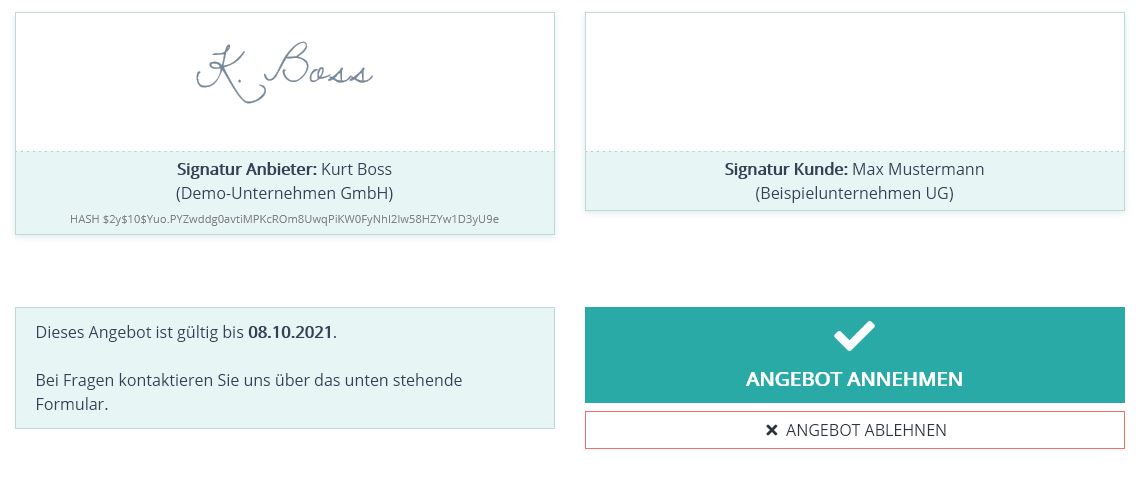
For the signature, we use a so-called hash value, which is calculated from the customer's signature image, the IP address used, and a few other attributes. This measure is intended to make subsequent image or database manipulation more difficult or prevent it. The hash value is a Coposal-specific checksum and does not represent a qualified method according to the eIDAS regulation. Therefore, this approach is not sufficient to be legally binding like an "advanced" or "qualified" signature. For this, a clear identification via two-factor authentication (mobile/SMS, etc.), an ID card, or biometric identification would be necessary.
In normal online transactions, this can theoretically represent an extraordinarily high hurdle for the customer. However, the qualified signature is also not necessarily required for online transactions, as a right of withdrawal applies here. This can only be excluded if the customer submits a legally binding declaration by mail (hand-signed printout / Postident), as in the case of insurance or banking transactions.
The simple electronic signature, as used in Coposal, is subject to judicial evaluation of evidence. It thus represents a piece of evidence but does not offer legal certainty. Ultimately, however, the simple electronic signature definitely offers you more security than a simple web form, where the confirmation is made entirely without a signature.